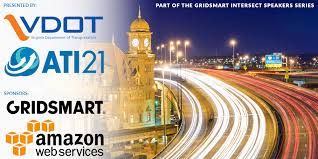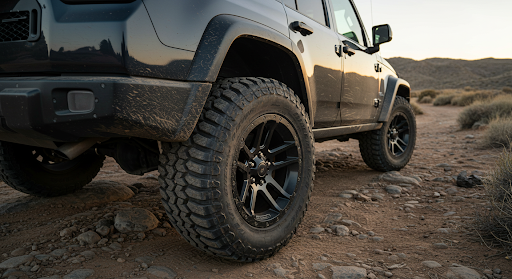
Leaders shaping the future of auto-mobility were announced, as Autos2050SM award winners by the Auto Alliance and the Alliance for Transportation Innovation. Award winners include Members of Congress, a governor, state senator, and individuals from a safety research consortium, startup tech firm, a proving grounds pioneer, major automotive supplier and a disability group advocating for self-driving cars and their mobility benefits.
“It is important to spotlight the innovators and pioneers who are making future advancements a reality today. Their efforts and technologies have the potential to bring tremendous societal benefits – first and foremost greater motor vehicle safety, as well as greater mobility and reduced emissions,” said Mitch Bainwol, president and CEO, Auto Alliance.
The new awards and dinner are part of the Autos2050SM event, including a conference focusing on the crossroads of public policy and automotive technology to be held prior to the dinner on Wednesday, January 24, 2018 at the Marriott Marquis.
“These winners were chosen for making game-changing contributions to the automotive industry over the past year, and they will be honored at the first Autos2050SM conference and Driving Innovation Awards Dinner,” said Paul Brubaker, president and CEO, ATI21.
The award winners, in alphabetical order, are:
* State Senator Jeff Brandes (R-FL) has been a leader in getting self-driving vehicles on Florida’s roads by eliminating legal and regulatory obstacles. Brandes authored legislation that reforms Florida’s motor vehicle laws and updated the sections of the regulations requiring a human behind the wheel. As Chairman of Florida’s Transportation Committee, Brandes inserted self-driving clauses into every transportation bill during his tenure. As a result, today every major Florida city must now incorporate autonomous vehicles into their long-range planning.
* U.S. Representative Debbie Dingell (D-MI) was instrumental in House passage of the SELF DRIVE Act. Her leadership, advocacy and seat on the House Energy and Commerce Committee will advance the testing and deployment of increasingly autonomous vehicles which are expected to save lives, create new economic opportunity and help Americans gain access to safe, affordable and convenient mobility options.
* U.S. Representative Bob Latta (R-OH) also played a significant role in the SELF DRIVE Act. Through his work as Chairman of the House Energy and Commerce Committee’s Subcommittee on Digital Commerce and Consumer Protection, he generated broad support in the House by highlighting the wide-ranging impacts and diverse societal benefits of self-driving vehicles, helping to pass the legislation in September 2017.
* Governor Terry McAuliffe (D-VA) has established Virginia as a global leader in the introduction of self-driving vehicles. McAuliffe opened the Virginia Automated Corridors to support autonomous vehicle testing. This 70-mile network of highways and arterial roads was developed by the prestigious Virginia Tech Transportation Institute to deploy high-definition mapping and data-acquisition systems. In 2017, McAuliffe established the Autonomous Systems Center of Excellence to assist automakers and regulators in bringing autonomous vehicles to consumers.
* Huei Peng, Director of Mcity is recognized for working with industry, government, and academia to improve transportation safety at the Mcity Test Facility in Ann Arbor, MI. Mcity is the first proving ground built for testing connected and automated vehicles and technologies in simulated urban and suburban driving environments. To date, Mcity has invested about $20 million in 40 research projects. Sixteen automakers and auto suppliers are partners in Mcity.
* Senator Gary Peters (D-MI) has been a key force in advancing legislation on self-driving vehicles in the United States Senate. A member of the U.S. Senate Committee on Commerce, Science and Transportation, Peters co-authored the bi-partisan American Vision for Safer Transportation through the Advancement of Revolutionary Technologies (AV START) Act, and he continues to work for its passage.
* Dr. Bryan Reimer, Research Scientist at MIT’s AgeLab and Associate Director of the New England University Transportation Center, and his work with the Advanced Vehicle Technology Consortium has been providing a data-driven understanding of how people engage with vehicle automation, using advanced computer-vision software and big data analytics. As of 2017, the consortium has gathered data across more than 7,146 participant days, 78 drivers and 275,589 miles of travel.
* Mark A. Riccobono, President of the National Federation of the Blind, has served as a strong advocate for autonomous vehicles for the disability community. In October 2017, the National Federation of the Blind hosted a first-of-its-kind gathering of consumers with disabilities, auto representatives, ride-sharing providers and policymakers to lay the groundwork for including accessibility in the development of promising new vehicle technologies in the early stages. The conference launched an ongoing conversation about how autonomous vehicles can be developed and deployed safely, while considering the needs of those 57 million Americans with disabilities.
* Austin Russell, Founder and CEO of Luminar Technologies, is an accomplished applied physicist who implemented his vision to develop a new type of LiDAR for autonomous vehicles. Luminar’s system provides 40 times more laser power, 10 times more range and 50 times more resolution, allowing their sensors to see not just where objects are, but to go further and see what they are – even at distance. Beyond creating a high-performance LiDAR, Russell’s company also designed a sensor specifically for high-volume manufacturing.
* Eran Shir, Co-founder and CEO of Nexar, is demonstrating leadership by building the world’s largest safe driving network. Dedicated to eliminating car collisions, Nexar leverages existing off-the-shelf hardware and applies its deep learning and sensor fusion technology to deliver consumers, insurance companies and automakers sophisticated safe driving tools including advanced driver-assistance systems (ADAS) and collision prevention alerts, collision reconstruction and first notice of loss reports. Since launching its vehicle to vehicle network in 2015, Nexar reports it has seen a 30 percent reduction in collisions among its users, and is helping expedite insurance claims every day as well as preventing countless fraudulent ones.
* Senator John Thune (R-SD) has been on the leading edge of advancing the benefits of self-driving vehicles through the introduction of the AV START Act in the U.S. Senate, and – as Chairman of the U.S. Senate Committee on Commerce, Science, and Transportation – he continues to work for public policy that ensures the federal government maintains safety while leaving room for innovators to reach their full potential in providing mobility benefits to Americans.
* Mike Tzamaloukas, Vice President, Navigation Technologies at HARMAN helped bring autonomous and advanced driver assistance systems (ADAS) to market, including HARMAN’s “map live layers” solution. This system identifies differences between on-board map data and real-world information captured by a vehicle’s ADAS, navigation system and on-board sensors. If a difference is detected between the navigation system and on-dashboard sensors, the information is anonymized and sent to the cloud, where HARMAN’s cloud platform analyzes the data collected from other similarly-equipped production vehicles.
Each recipient was nominated by peers within the industry and selected by the Autos2050SM Host Committee comprised of representatives from automakers. The 2050 Awards recognize ingenuity, impact and leadership.
The Autos2050SM dinner starts with a reception at 5:30 pm, with dinner at 7 pm on January 24 at the Marriott Marquis. Prior to the dinner, a conference in conjunction with the Washington, DC Auto Show will be held that day, opening with a luncheon honoring Sen. Thune, Chairman, U.S. Senate Committee on Commerce, Science, & Transportation, followed by a conference on autonomous vehicles, artificial intelligence and more.
For more information, visit www.Autos2050.com
The Auto Alliance is a trade association representing 12 automakers. Together, our mission is to promote policies that allow automakers the freedom and control to build cars and light trucks that are safe, reliable, energy-efficient, clean and smart — all so our customers can enjoy greater peace of mind as they go about their daily lives. Visit www.autoalliance.org.
The Alliance for Transportation Innovation (ATI21) is a consortium of transportation technology innovators, subject matter experts, and researchers. The consortium is dedicated to increasing public and stakeholder awareness of the transformative safety, sociological, and economic improvements that can be realized through the accelerated development and deployment of advanced transportation technologies. Visit www.ati21.org.









More Stories
Towing Services Explained: 6 Key Facts You Need to Know
Environmental Factors That Influence Ceramic Coating Choices
Professional vs. DIY Tinting: What You Should Know